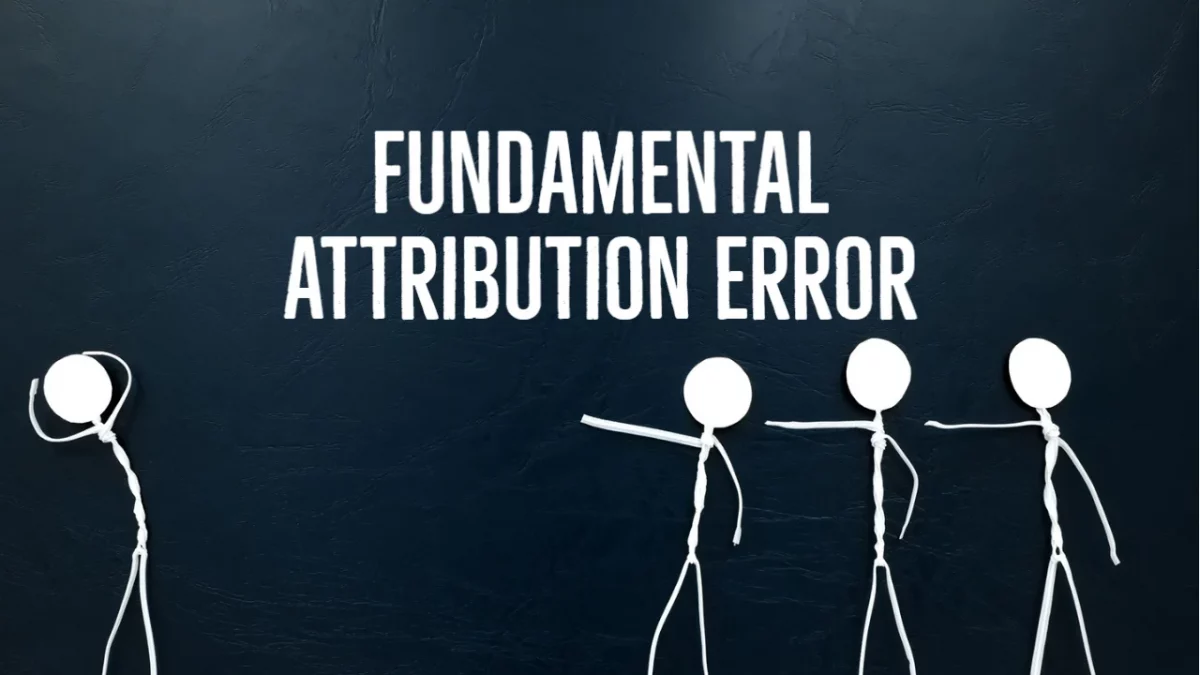Introduction
In the realm of decision-making, our perceptions of others play a significant role in shaping our choices and interactions. However, one mental model that often leads us astray is the Fundamental Attribution Error. Anchored in human psychology, this cognitive bias refers to our tendency to attribute the behavior of others to internal characteristics rather than considering external situational factors. This blog post aims to provide a comprehensive understanding of the Fundamental Attribution Error, its relevance in decision-making processes, its prevalence in our daily lives, and practical strategies to mitigate its influence.
Understanding the Fundamental Attribution Error
The Fundamental Attribution Error arises from our innate cognitive processes and our inclination to explain behavior in terms of personal traits, overlooking the impact of external circumstances. We tend to overemphasize dispositional factors (such as personality, character, or intentions) when interpreting the actions of others, while underestimating the role of situational influences. This error leads us to make biased judgments, often resulting in irrational decisions that are contrary to our best interests.
Examples of the Fundamental Attribution Error
Personal Life Decisions:
Imagine encountering a person who appears upset and short-tempered during a social gathering. Without considering potential external factors (e.g., a recent loss or stressful event), you may hastily conclude that this person has an inherently negative personality. This attribution can influence your future interactions and decisions, leading to missed opportunities for connection and collaboration.
Business Scenarios:
In the corporate world, the Fundamental Attribution Error can occur during performance evaluations. Suppose an employee fails to meet a target despite facing numerous obstacles, such as limited resources or organizational constraints. Instead of considering these external factors, a manager may attribute the failure solely to the employee’s lack of competence, resulting in unfair evaluations, demoralization, and hindered career growth.
Public Policy-Making:
The Fundamental Attribution Error can impact public policy decisions. When society perceives an increase in crime rates, the knee-jerk reaction may be to assume that individuals engaging in criminal behavior are inherently bad or immoral. This attribution overlooks the complex interplay of socioeconomic factors, educational opportunities, and systemic issues, hindering the implementation of effective policies that address root causes.
Mental Biases and Underpinnings
Several mental biases contribute to the occurrence and reinforcement of the Fundamental Attribution Error. These include confirmation bias, whereby we seek information that supports our initial attributions, and the actor-observer bias, which influences our interpretation of our own behavior versus that of others. Additionally, cultural factors, individualistic tendencies, and social norms can amplify the impact of this bias.
Moreover, research suggests that our own perspective and cognitive limitations influence the Fundamental Attribution Error. As observers, we often lack complete information about a person’s circumstances, leading us to rely on shortcuts and stereotypes to fill in the gaps. Furthermore, our reliance on internal attributions may stem from our inherent need to understand and make sense of the world around us.
Identifying and Mitigating the Fundamental Attribution Error
Recognizing the presence of the Fundamental Attribution Error in our decision-making processes is crucial for making more objective judgments. Here are practical strategies to help identify and mitigate the impact of this bias:
Practice Perspective-Taking: Cultivate empathy and consider alternative perspectives by putting yourself in the shoes of others. This helps broaden your understanding of their circumstances and challenges, reducing the tendency to jump to dispositional attributions.
Seek Information: Gather more information about the situation and context before making judgments. Ask questions, engage in active listening, and seek diverse viewpoints to gain a more comprehensive understanding of the factors influencing someone’s behavior.
Reflect on Situational Factors: Pause and reflect on the potential external factors that might be contributing to the observed behavior. Consider how these situational elements could shape your own behavior if you were in a similar situation.
Challenge Assumptions: Actively challenge your initial attributions by considering alternative explanations and possibilities. Be open to revising your judgments based on new information and evidence.
Conclusion
The Fundamental Attribution Error reminds us of our tendency to oversimplify the behavior of others, overlooking the impact of situational factors. By understanding the psychological biases that contribute to this error and adopting practical strategies to mitigate its influence, we can enhance our decision-making processes and promote more accurate and fair assessments of others. Awareness and active avoidance of the Fundamental Attribution Error are key in fostering empathy, promoting collaboration, and making informed choices that align with our best interests and those of society as a whole.
